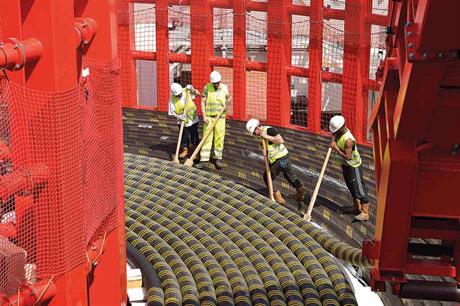FRANCE: The cost of grid connection for all new
offshore-wind projects tendered under the competitive dialogue process will be
carried by grid operator RTE rather than the developer, according to a new
French law.
It will include stranded costs in the event of the tender
being abandoned.
"This will allow quicker implementation of marine
renewable-energy projects and reduce their cost," the government said.
RTE will recover the costs from charges levied on large
industrial consumers.
In case of abandonment, the costs will be split between RTE
and the developer, depending on where responsibility lies. In such cases, the
tender would normally be relaunched, thereby limiting RTE’s losses.
The grid operator will compensate developers for any delay
in delivering the connection by the date set in the tender terms. And it will
compensate plant owners for any damage to the grid connection or malfunction
attributable to RTE that results in a partial or total loss of earnings.
"The new law makes everyone aware of their
responsibilities," said RTE, which had been pushing for the change.
Operators will be able to spread the cost of investment,
benefit from scale effects and start planning the connection as soon as the
zone is announced and the tender launched, rather than waiting for a winner to
be announced.
"We can imagine that RTE will plan several electrical
substations and grid infrastructures over a long-term period," said
Matthieu Monnier, head of offshore wind at French wind energy association FEE.
From the developers’ point of view, the new provisions
should avoid the risk of grid connections not being ready in time, and so help
reduce the cost of project finance.
"These are very positive measures for offshore wind
energy in France," Monnier said. "They will support cost reduction
and the competitiveness of the French industry."
The government will now issue decrees defining how
compensation will be calculated and fixing ceilings on how much RTE will have
to pay in percentage and absolute terms, explained Marion Lettry, assistant
executive commissioner of renewable-energy trade body SER.
The first project to follow the new rules will be the
250-750MW site being tendered off Dunkirk.
Permit envelope
The industry is also eagerly awaiting the passage of another
law going through parliament aimed at further simplifying the regulatory
framework and derisking offshore projects.
Measures include introducing a "permit envelope",
whereby all necessary permits would be secured before the tender and which
would avoid candidates having to lock in technical choices too soon. The
authorities would carry out environmental impact assessments and other
preliminary studies, while public debates would be held earlier in the process
to improve acceptability.


No comments:
Post a Comment